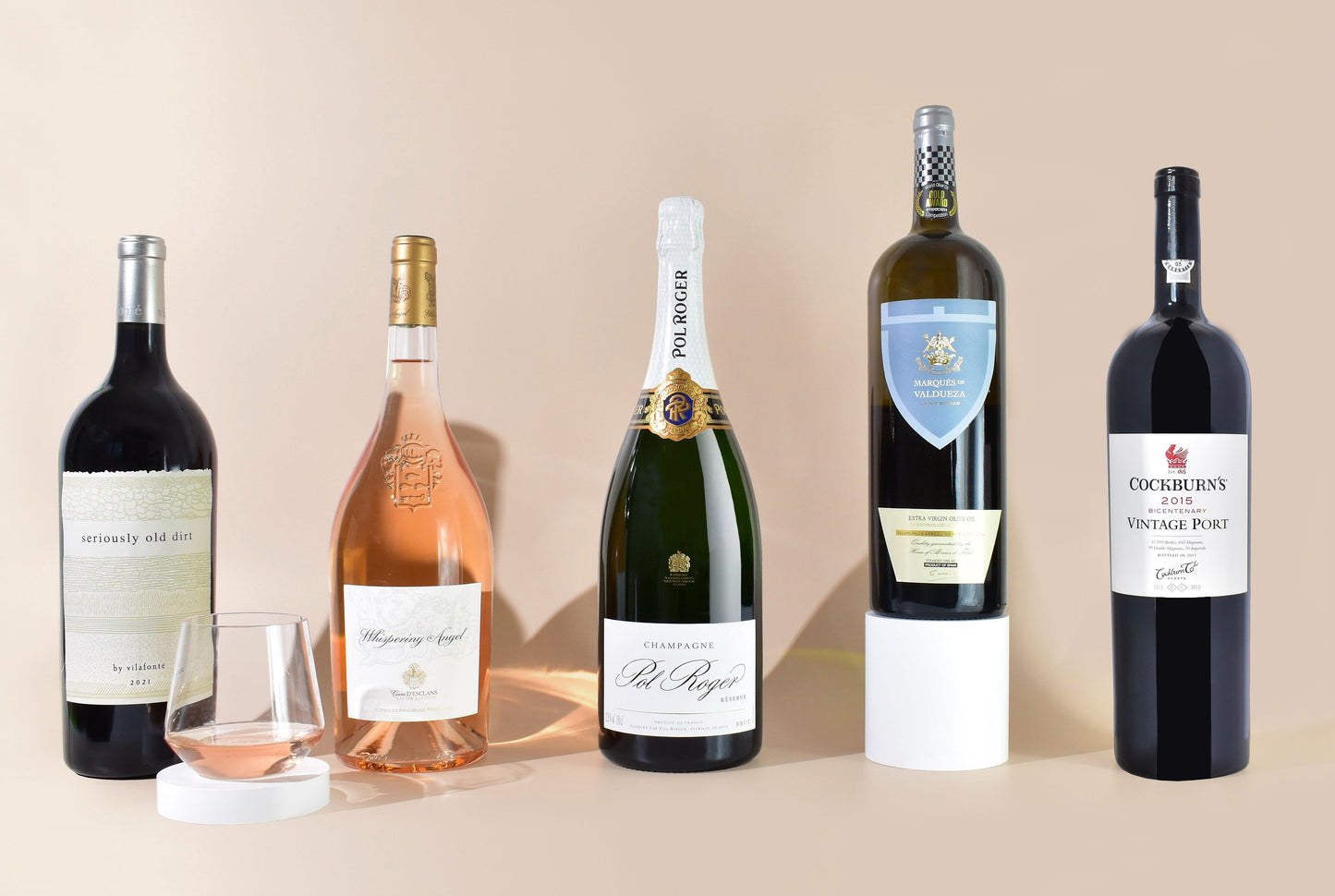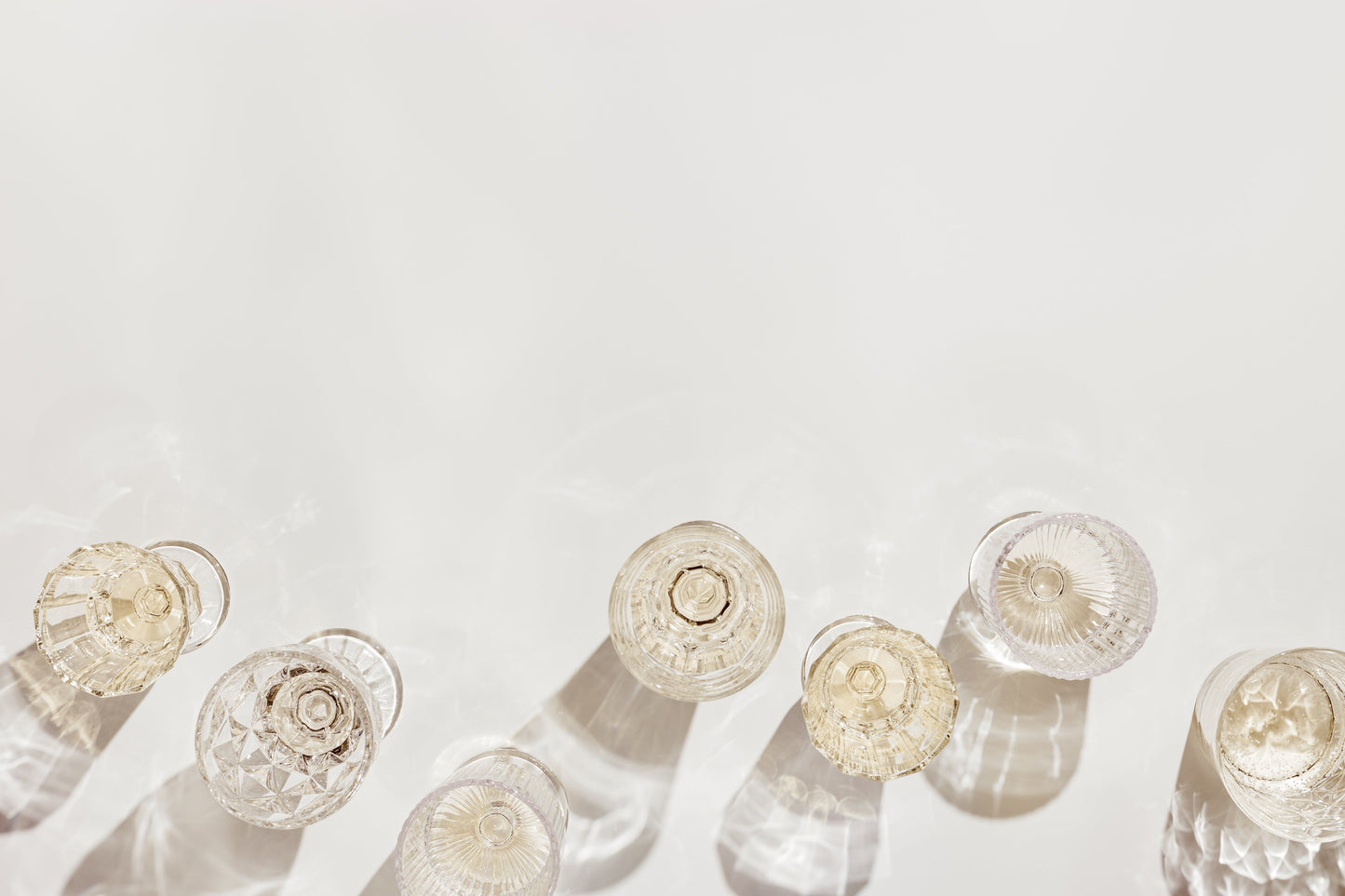
There’s something undeniably impressive about a magnum. Twice the size of a standard bottle, it commands attention at the table, but there’s more to it than just theatrics. When it comes to aging wine, size really does matter—and magnums offer distinct advantages over their smaller counterparts. Whether you're looking to cellar wines for years or simply want to enjoy them at their best, understanding why magnums are superior for aging is key.
Slower, More Even Aging
One of the biggest factors in how wine ages is oxidation—the slow interaction between wine and oxygen that helps develop complexity over time. In a magnum, the wine-to-air ratio is much lower than in a standard 750ml bottle. This means the aging process happens more gradually, preserving freshness and allowing flavours to evolve in a more refined way.
Simply put, a magnum is the perfect balance: enough oxygen to encourage aging, but not so much that it speeds up the process. This leads to wines that retain their structure and vibrancy for longer, making magnums the ideal format for those with the patience to wait.
Better Temperature Stability
Temperature fluctuations can be a wine collector’s worst nightmare, as they cause the liquid inside the bottle to expand and contract, potentially damaging the wine. Larger bottles like magnums have a greater thermal mass, meaning they resist temperature changes better than standard bottles.
If you’re storing wine long-term, magnums provide an extra layer of protection against temperature swings, keeping the wine more stable and ensuring it ages gracefully.
Preserving Freshness & Complexity
Magnums don’t just slow aging—they also enhance it. Because the process is more controlled, the wine develops greater complexity while retaining its brightness and freshness. This is particularly noticeable with Champagne and sparkling wines, where magnums allow for finer bubbles and a more expressive profile over time.
It’s no coincidence that the world’s top Champagne houses prefer to age their best vintages in magnums. The slower aging process results in richer textures, deeper flavours, and an overall more refined drinking experience.
Magnums vs. Standard Bottles: A Side-by-Side Test
Many wine lovers have conducted their own experiments, tasting the same wine from both a standard bottle and a magnum after a decade or more of aging. The results are often striking—wines from magnums tend to taste fresher, more balanced, and more nuanced compared to their smaller-bottled counterparts.
This makes magnums an excellent choice not just for collectors, but for anyone looking to enjoy wines at their peak.
The Ultimate Celebration Format
Beyond the science, there’s something undeniably special about opening a magnum. Whether it’s a dinner party, a milestone event, or just a reason to celebrate, a magnum turns an ordinary occasion into something memorable. And when the wine inside is aging beautifully, it’s all the more rewarding.
So next time you're picking up a bottle to cellar, consider going bigger. Your future self will thank you.



